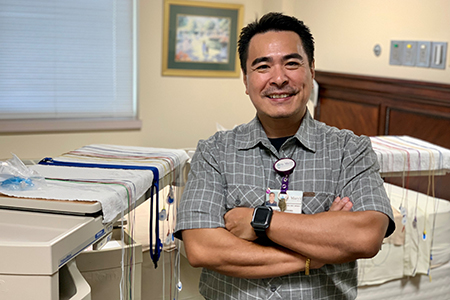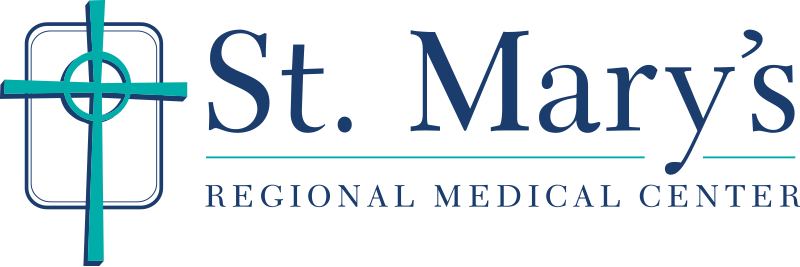How Your Sleep Can Affect Your Heart Health and More

July 22, 2021
Everyone feels tired sometimes. If poor sleep is constantly dragging you down, help is available. Asking your doctor about a sleep study may be the first step toward a happier life. It can also have a big impact on your health. Here, St. Mary’s Sleep Tech Jeffrey Young explains more.
What are some possible signs that I may need a sleep study?
If you’re waking up tired all the time with lack of energy through the day, this can be a reason to have a sleep study. Other signs of a possible sleep disorder may include waking up with a dry throat, snoring, waking up from a snorting sound, waking up with a headache, and witnessed apnea.
What is apnea, and what are the risks?
The most common type of sleep apnea is called obstructive sleep apnea. This occurs when the muscles in the back of the throat relax and the upper airway is blocked. As a result, there are pauses in breathing. In addition to excessive tiredness, this can potentially increase the risk of high blood pressure, heart disease and other health problems.
What is a home sleep study, and how can it help?
"I've done both inpatient and home sleep studies through St. Mary's. While both were great experiences, the home sleep study allowed me to stay in my home and required less equipment. The whole process was simple and now I'm sleeping a lot better." – Ryan Williams, Sleep Patient
A home sleep study or HST (home sleep testing) is a unit used to help assess your sleep. It has three key parts: a belt that is strapped around your chest to measure breathing effort; a nasal and oral pressure monitor cannula (thin tube) for detecting breathing flow from the nose and mouth; and a pulse oximeter (that clips to your finger) to measure oxygen saturation in the blood. You are instructed on how to use the equipment for a couple of nights at home, with a set of pre- and post-questionnaires.
What happens next, and will my insurance cover this?
A board-certified sleep physician interprets your study results and makes a recommendation. Most insurance approves home sleep testing. Some physicians use it for screening for patients with no comorbidities, such as heart irregularities, diabetes or hypertension. For more in-depth testing, an overnight in-lab study may be recommended. If you have a sleep disorder, getting treatment can improve your health and quality of life.
Sleep Studies at St. Mary's
At-home and overnight in-lab sleep studies are available through the St. Mary’s Sleep Disorders Center. Physicians affiliated with St. Mary’s focus on diagnosing and treating sleep disorders such as sleep apnea, insomnia and periodic limb movement disorder.
